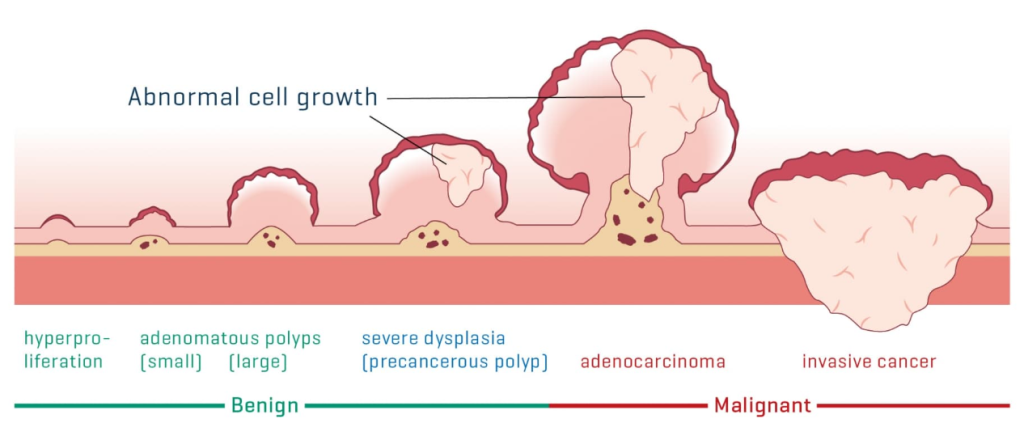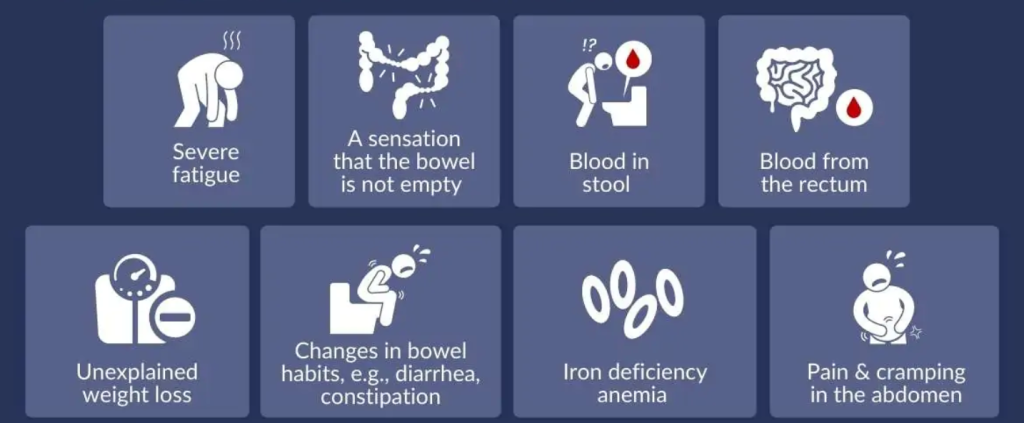
March is recognized as Colorectal Cancer Awareness Month, and during this month, there’s a focus on raising awareness about colorectal cancer, its risk factors, prevention, and the importance of screening. The color blue is associated with this cause, symbolizing the efforts to promote awareness and early detection of colorectal cancer.
Colorectal Cancer Overview
Colorectal cancer (CRC) is a type of cancer that begins in the colon or rectum. It often starts as precancerous growths called polyps, which can develop into cancer over time. It is one of the most common cancers, but when detected early through screening, it is highly treatable.

Why Screening is Important
- Early Detection and prevention: Screening for colorectal cancer can identify cancer or precancerous polyps before symptoms develop. The earlier the cancer is detected, the more treatable it is.
- Life-Saving: Regular screening significantly reduces the risk of dying from colorectal cancer.
Risk factors of Colorectal cancer
Here is a list of risk factors to have a Colorectal cancer:
- Advanced age (most cases are diagnosed after the age of 50)
- Obesity
- Smoking
- Sedentary lifestyle (no physical activity)
- A diet rich in animal protein and saturated fats
- Low fiber diet
- Excessive alcohol consumption
- Having a medical history of other types of cancer (e.g., breast, ovarian, uterine)
- Having a family history of colorectal cancer or colorectal polyps
- Long-time diagnosis of inflammatory bowel diseases (IBD) such as ulcerative colitis or Crohn’s disease
- The presence of polyps in the colon or rectum. A number of colorectal cancer cases are found to start within polyps, which develop inside the bowel wall and are confirmed through colonoscopy.
Symptoms of colorectal cancer

Here are the common symptoms to watch out for:
- Changes in bowel habits, such as constipation, diarrhea
- Reporting a sensation that the bowel is not empty despite bowel movement
- Melena (black stool), which is the presence of blood in the feaces that turn the stools black
- Rectal bleeding, or incidents of bright, red blood coming from the rectum
- Pain and cramping in the abdomen
- Unexplained weight loss
- Severe fatigue
- Iron deficiency anemia in men
- Iron deficiency anaemia in women after menopause
Screening Recommendations for Colorectal Cancer
- Age 45 and older:
- For average-risk individuals, screening should begin at age 45. Methods include colonoscopy, stool tests (FIT, FOBT), blood test.
- Family History or Increased Risk: Those with a family history of colorectal cancer or certain genetic conditions (Lynch syndrom, Familial adenomatous poliposis) may need to begin screening earlier and more frequently.
- Talk to Your Doctor: Consult your healthcare provider to determine the best screening option for you based on your personal and family health history.
Colorectal screening
- The Faecal Immunochemical Test (FIT): this test detects blood in stool from a sample, including traces of blood that are not visible to normal eyes. The test is painless and easy to do in the comfort of your home without any preparation. Results will be informed to you via mail or phone. FIT should be repeated every year. In the event of positive test result, it indicates presence of blood in your stool but not necessarily colorectal cancer. You will advised to go for further checking, possibly a colonoscopy which we discuss below.
- The Fecal Occult Blood test (FOBT): A fecal occult blood test looks for blood in a sample of stool. It can find tiny amounts of blood that can’t be seen just by looking at the stool. The medical term for this hidden blood is occult blood. Occult blood in the stool may be a sign of cancer or polyps in the colon or rectum. Polyps are growths of cells that aren’t cancers but could become cancers. Not all cancers or polyps bleed. It may be used if you have an average risk of colon cancer and no symptoms. The fecal occult blood test is typically done every year.
- Colonoscopy: This procedure is conducted at a Intercare hospital and requires bowel preparation. A specialist uses a lighted tube to look inside the rectum and colon, checking for polyps or signs of cancers, while you are sedated. It is considered the gold standard of colorectal screening. However, it involves a much higher cost compared to FIT and bowel preparation for 2-3 days prior to colonoscopy. The test can be repeated every 10 years, unless advised otherwise by your doctor (if history of polyps or other abdnormalities: every 3 years).

Takeaway Message
Colorectal cancer is one of the most common cancer.
Early detection helps to improve treatment effectiveness and save lives. You can protect yourself by adopting healthy lifestyle and dietary habits and go for the recommended screening. Spreading awareness of the condition and available subsidized screening programs is also important, whether you hit 45 or not.
If you think you to a screening, please book an appointment to see one of our endoscopy doctors at Intercare Hospital.
You can call 023 996 900 to book an appointment with Dr Caroline Zabiegaj-Zwick or Dr Somalene Pa.

